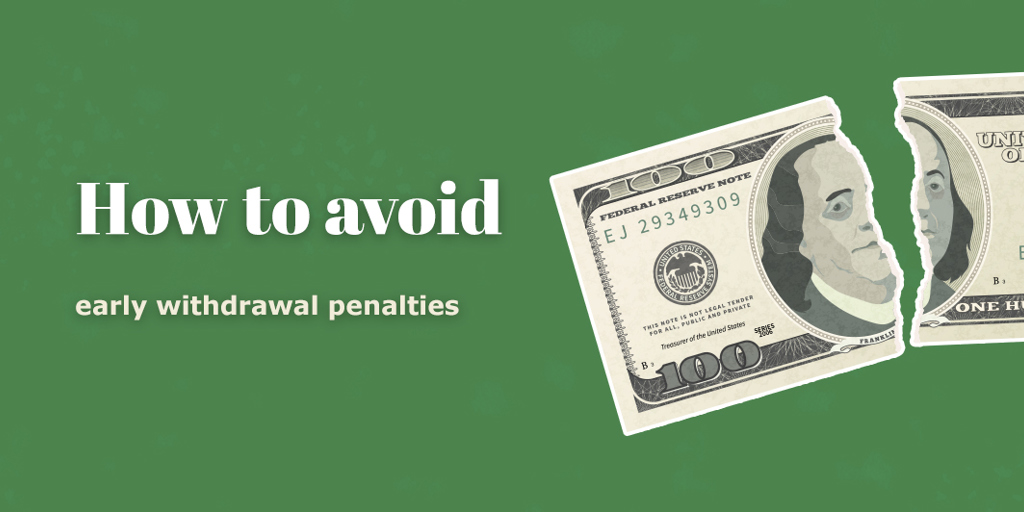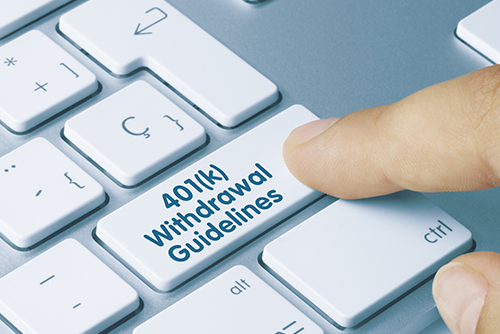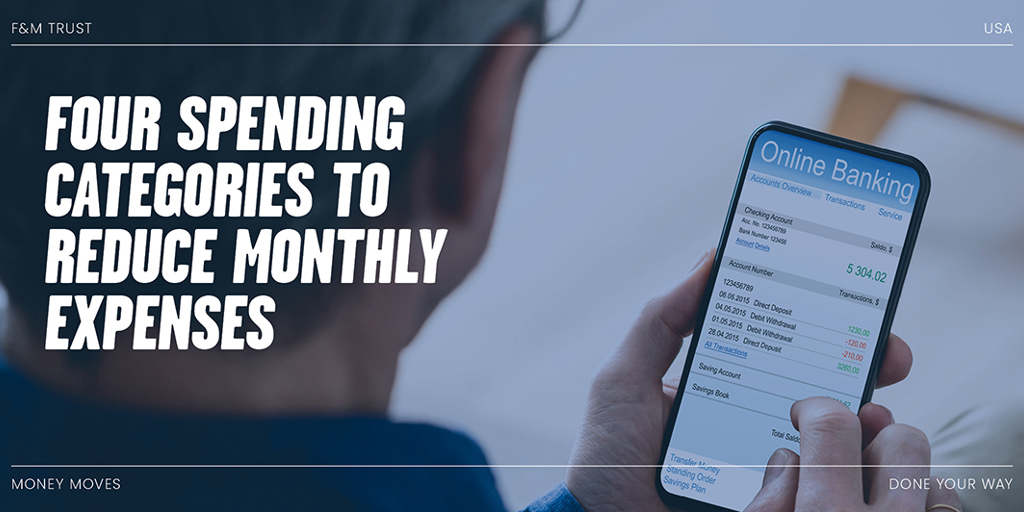


How to avoid early withdrawal penalties
To increase the likelihood that tax-preferred savings actually will be used for retirement, Congress included a 10% penalty tax on IRA and 401(k) distributions before the account owner reaches age 59½. The penalty applies in addition to the regular income tax on the distribution. For example, someone in the 15% tax bracket who takes a $10,000 premature distribution would owe $1,500 in ordinary tax and $1,000 as an early withdrawal penalty, leaving just $7,500 in after-tax proceeds.
Fortunately, there are exceptions that allow some taxpayers to dodge the penalty (but not the ordinary income tax).
Series of substantially equal periodic payments. A series of payments for the life of the taxpayer or for the joint lives of a taxpayer and a designated beneficiary will avoid the penalty. The payment stream may begin at any age. However, if the payout terms are modified within the later of five years of inception or the taxpayer reaches age 59½, the penalty will be applied, plus interest, to all the taxable amounts received. An addition to the account balance is considered a modification for this purpose.
Separation from service. A taxpayer who separates from service and is at least 55 years old will not owe a penalty on amounts received from the employer’s retirement plans. This provision does not apply to IRAs.
not apply to IRAs.
Disability. If one is no longer able to work, the 10% penalty won’t apply to retirement plan distributions. However, if the taxpayer is able to engage in any gainful activity, even though diminished, he or she is not considered disabled for purposes of this provision.
Medical expenses. To the extent that the retirement distributions are used to pay deductible medical expenses, the penalty is avoided. However, the deduction for medical expenses is limited to amounts in excess of 10% of adjusted gross income.
Medical insurance premiums. Unemployed taxpayers may use retirement plan money to pay for their health insurance without penalty.
Qualified higher education expenses. College costs for the taxpayer, the spouse or their children or grandchildren may be paid penalty-free from retirement accounts. Such costs include tuition, fees, books, supplies and equipment. If the student has at least half of a normal full-time course load, reasonable costs for room and board also may be paid.
First-time home buyers. Up to $10,000 may be withdrawn without penalty for the purchase of a principal residence.
Qualified Domestic Relations Orders (QDRO). Transfers incident to divorce generally won’t be penalized.
Other exceptions to the penalty rule include active duty military, ESOP dividends and distributions due to a tax levy. This is a complicated area of the tax law, so taxpayers should seek professional counsel before making any distribution decisions.
(August 2019) ©2019 M.A. Co. All rights reserved.
Recent Articles
Join our e-newsletter
Sign up for our e-newsletter to get new content each month.






















